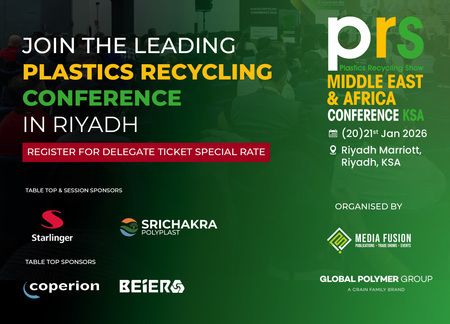
The event will connect delegates to the latest information and technology developments in the fast-changing plastics recycling industry. It will bring together industry leaders, innovators and procurement decision makers shaping the future of recycling, sustainable materials and circular packaging. PRSI will comprise an exhibition with a high-level conference.
The exhibition will showcase the latest solutions and technologies available on the market. At the conference that runs alongside the show, international experts will address key themes including circular economy, regulations, challenges, opportunities, innovations, technologies and trends, and share insights and experiences from across the plastics sector to promote a green future.
Following a hugely successful launch in 2024, the Plastics Recycling Show India (PRSI) will return for its third edition to the Bombay Exhibition Center in Mumbai, India, on 1-3 September 2026.
The three-day PRSI exhibition and conference is the leading event in the region dedicated specifically to plastics recycling.
Over 6800+ visitors and 90+ exhibitors participated in the 2025 edition, exploring new technologies, partnership opportunities, and practical solutions that support India’s transition towards circularity. The show floor highlighted advancements in machinery, material innovation, waste management and next-generation recycling systems.
